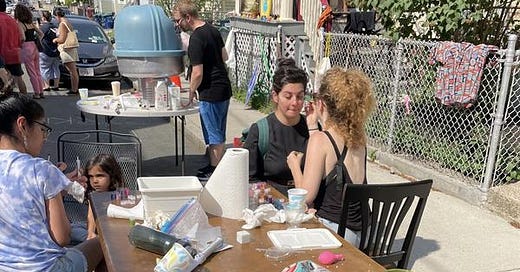There’s been a lot of talk about the rise of loneliness, in both Urbanist and Non-urbanist spheres. The CDC announced that social isolation can be just as bad for your health as smoking, and you can find a number of articles about the “Friendship Recession.”
While the internet allows people to form connections from long distances, it’s important to remember that close relationships have historically been built on the neighborhood scale. That’s where Cambridge, MA, and their surprisingly effective new grant policy, comes into play.
In May of this year, the city launched a pilot program offering $200 grants for citizens to host a block party in their neighborhood. After applying for a block party permit with the city, the money can be used to buy food, decorations, or anything necessary for a neighborhood get-together.
After the new grant program rolled out, applications tripled. Cambridge has given nearly 12 thousand dollars in funding for block parties since this May, supporting more than 50 neighborhood gatherings.
Block parties are a phenomenal way to increase a sense of belonging in an area. By offering a way to make friends, eat good food, and relax, block parties can have a strong impact on the social fabric of a neighborhood.
When people know their neighbors, they feel more safe, can receive and offer help or back-up home supplies, and have access to a broader network of knowledge, resources, and opportunities. A tight-knit group of neighbors forms a natural group for mutual aid, through low-stakes social ties. If a neighborhood resident falls into a time of need, neighbors know they can rely on one another for emotional and material support.
We live in cities for a number of reasons, but ultimately, urban living offers greater possibilities for careers, recreation, and culture – but none of these things could exist without the social connection which occurs within cities. We build connections with one another so that we may build greater projects for one another. Block parties are one great method for forming those social connections which ultimately make our cities great places to live.
Cities are also busy and expensive. Not every resident has the ability to throw a block party on their own, but every neighborhood should have the opportunity to experience block parties. $200 is a small financial investment that makes a giant social impact on a neighborhood, and I hope that more cities encourage block party planning through a program similar to the one in Cambridge.
Happy October everyone. Talk to your neighbors, if it’s been a while.




